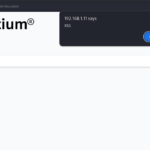
\WordPress powers over 43% of websites globally, making it a cornerstone of the internet. However, with such popularity comes risk: an estimated 13,000 WordPress websites fall victim to hacking daily. This alarming statistic underscores the importance of robust website security for WordPress users.
Why WordPress Websites Are Frequently Targeted
We have identified there are several reasons why WordPress websites are frequently targeted by hackers. Is this the reason why the WordPress core is vulnerable by design? Not really! Let’s see some of the main reasons why WordPress Websites are getting compromised!
Popularity and Market Share
For any website be it for a corporate presence, e-commerce platform, or a personal portfolio WordPress is undeniably the premier choice. This leading content management system (CMS) provides an unparalleled combination of ease of use and powerful capabilities.
Millions of websites use WordPress. Hackers see it as a top-valued target. Exploiting vulnerabilities in WordPress offers attackers a wide-reaching impact. And vulnerabilities arise when people start customizing it.
Vulnerable Plugins and Themes
Studies show that the majority of vulnerabilities in WordPress websites stem from plugins and themes, with plugins representing the largest attack surface. Neglecting updates leaves doors open for hackers. For example, a 2021 report from Colorlib highlighted that 99.42% of WordPress vulnerabilities originated from plugins (92.81%) and themes (6.61%) (Colorlib).
For example, In 2024, according to security researchers, to compromise millions of WordPress website, hackers exploited three popular WordPress plugins, such as LiteSpeed Cache, WP Statistics, and WP Meta SEO. Now, these plugins have their own CVE(WP Statistics, LiteSpeed Cache Vulnerability, WP Meta SEO plugin Vulnerability).
Source: Bitdefender website.
User Negligence
Many individuals often rely on weak passwords, fail to configure their systems properly, and overlook essential security measures, all of which significantly raise the risk of compromise. Most users install and perform some customization by installing a bunch of plugins, making the WordPress websites more open to a cyber attack.
Common Types of Attacks on WordPress Sites
- Brute Force Attacks: Hackers use automated tools like Hydra and try to crack login credentials by making educated guesses. Unfortunately, WordPress doesn’t have built-in brute force protection.
- SQL Injections: Exploits vulnerabilities in forms or URLs to manipulate databases. Basically, it is found in the vulnerable plugins.
- Cross-Site Scripting (XSS): Injects malicious scripts into web pages viewed by users. Commonly found in outdated plugins.
- Backdoors: Hackers first compromise the site and install hidden files to maintain unauthorized access. As a result, the website frequently gets compromised.
Consequences of a Hacked Website
- Data Breaches: Sensitive user and business data can be leaked. This can have a huge impact on the business.
- Loss of Trust: Customers lose confidence in your brand if data is breached.
- Search Engine Penalties: Google blacklists websites flagged as unsafe, leading to a drop in traffic (Source: Google Safe Browsing Transparency Report).
- Financial Losses: Bouncing back from an attack can be expensive, involving costs for website restoration and possibly legal fees as well.
How to Protect Your WordPress Website
- Regularly update WordPress core, plugins, and themes to patch vulnerabilities.
- Secure your admin account with a strong, unique password.
- Choose Reliable Hosting Providers.
- Limit Plugin and Theme Usage.
- Enable HTTPS.
- Take Regular Backups.
- Set Proper File Permissions.
- Monitor Activity Regularly.
Need an affordable WordPress security audit?
Order the security audit package for an affordable and fixed price today!
How Bytium LLC Can Help Protect Your Website
At Bytium LLC, we specialize in helping small and medium-sized businesses secure their websites and protect their online presence. Our expert cybersecurity team offers:
- Comprehensive Website Security Audits: Identify vulnerabilities in your website’s plugins, themes, and configurations.
- Harden Your WordPress: We can review your WordPress website and take the necessary action to harden it. If required, we also harden your server.
- Custom Security Solutions: Not every site is the same. We tailor to your specific needs, ensuring maximum protection.
- 24/7 Monitoring and Support: Stay ahead of threats with real-time monitoring and rapid response. We can integrate the website into our SIEM.
- Regular Updates and Maintenance: We keep your WordPress core, plugins, and themes updated to minimize risks.
Final Thoughts
On the first day, A fresh installation of WordPress is fairly secure. It doesn’t mean it is 100% safe from cyber attacks. It starts becoming vulnerable gradually, basically, when you start creating pages, install plugins, customize it for your needs. Small businesses often use WordPress for e-commerce or online business without a proper security configuration, which makes them easy targets for hackers. Even the wpscan database has a scary number of WordPress vulnerabilities in their database.
However, by implementing proactive security measures, you can significantly reduce the risk of becoming a victim. Staying informed, vigilant, and prepared is key to safeguarding your website and its data.
Frequently Asked Questions
1. Why is WordPress targeted more than other platforms?
There are several reasons WordPress websites are the prime target:
- Its popularity
- Negligence in securing it
- Vulnerable Plugins and themes make it easy to compromise
2. Are free plugins safe to use?
Safety isn’t guaranteed. Check the plugin’s reputation and existing vulnerabilities report before installing them. Remember, One of the main reasons is using the plugins that make your site vulnerable.
3. How can I secure my WordPress Website?
You can follow the advice discussed in this article. If you genuinely want to secure or harden your websites:
- Perform a black box security audit.
- Harden the server and WordPress core.
- Install a server-side firewall such as ModSecurity.
- Monitor logs for suspicious requests and failed login attempts.
- Integrate with SIEM for continuous security monitoring.
4. Can a hacked WordPress website be recovered?
Yes, with backups and professional help, but prevention is far less costly and time-consuming.




